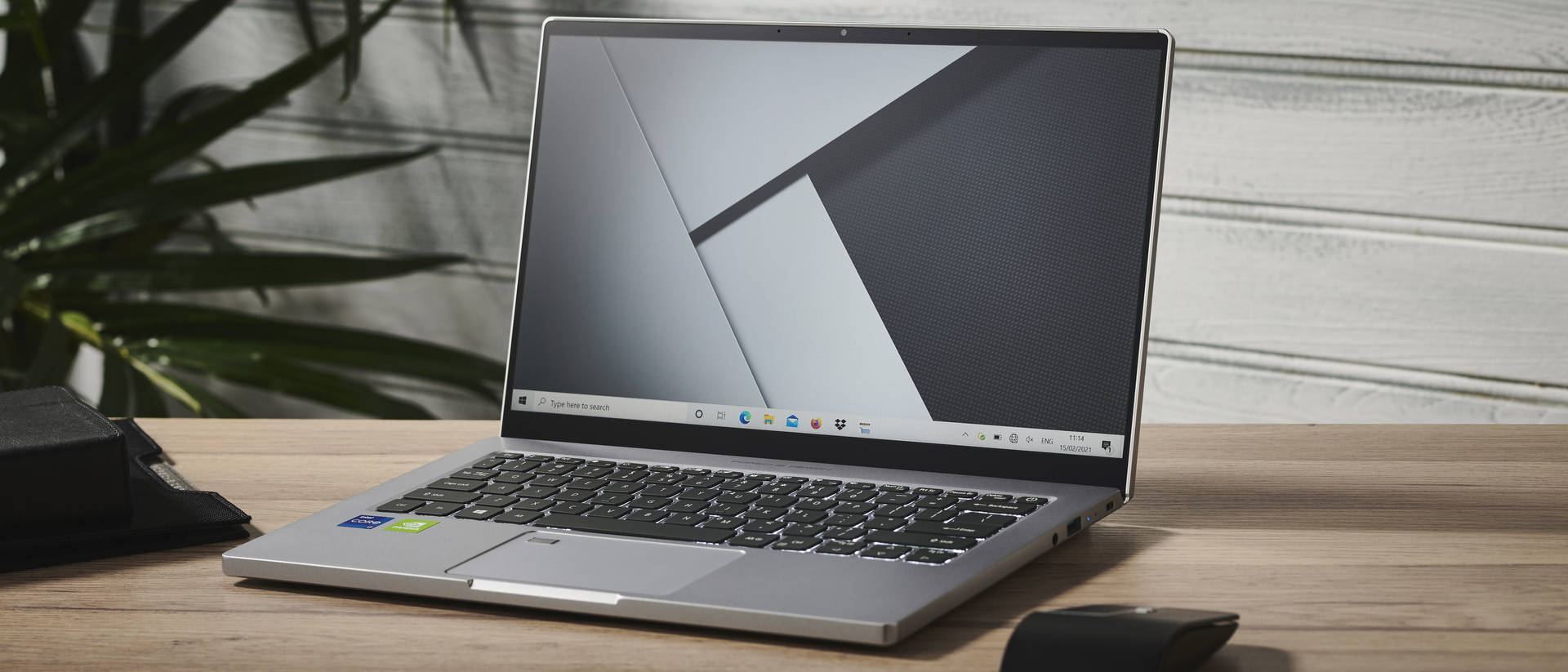TechRadar Verdict
The Porsche Design Acer Book RS is a great laptop for people who command style with their substance, but its unique appearance and prestigious branding make it a poor investment for most.
Pros
- +
Unique branded design
- +
Great battery life
- +
Tactile keyboard
- +
Powerful performance
Cons
- -
Way too expensive
- -
Lackluster audio
- -
Accessories package is overpriced
Why you can trust TechRadar
Two-minute review
The Porsche Design Acer Book RS was a slightly surprising addition to the lineup of new Acer laptops announced during CES 2020; while other new models also featured Intel’s 11th-generation processors, the Porsche Design comes with a chassis design inspired by the legendary automobile brand.
You’d ordinarily be looking to brands like Mac or Dell to provide this kind of luxury product, so it may surprise you to see car manufacturer Porsche has teamed up with Acer.
The Porsche Design Acer Book RS configuration we reviewed comes with an Intel i7-1165G7 processor and dedicated Nvidia GeForce MX350 graphics, with this specification being the higher of the two available. For the device alone you’re looking at the princely sum of $1,700 / £1,900 (around AU$3,400), though a premium package is available that bundles the laptop with matching accessories.
First impressions of the laptop certainly warrant its entry into the luxury laptop category, with its strikingly elegant chassis and Porsche logo proudly displayed for the world to see. This isn’t some basic rebranding of an existing Acer device, and the premium appearance of the lid and lightly textured finish all help to make the Porsche Design Acer Book RS stand out against high-end competitors as well as the best Acer laptops on the market.
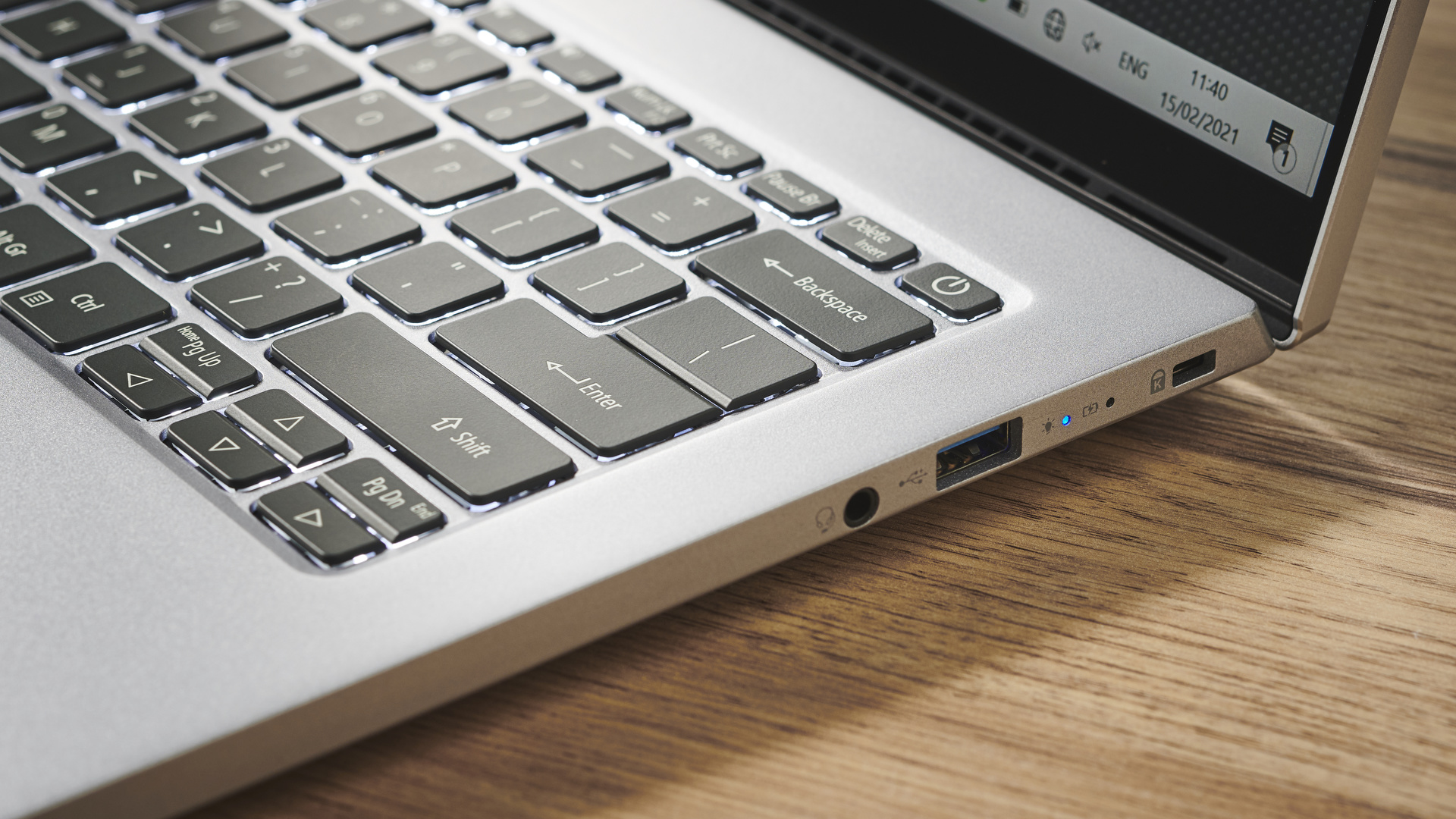
Unfortunately, that positive first impression starts to crumble slightly when you start looking beyond the laptop’s aesthetics. The performance in many areas is mediocre at best for a machine in this price range, and the build quality feels a little disappointing in places. In almost every area we found the Porsche Design Acer Book RS to underperform when compared against products that are significantly cheaper, which strongly suggests that you’re paying mostly for the Porsche Design branding here.
The brand new 11th-gen intel CPU is the workhorse we anticipated it would be, and the dedicated GeForce MX350 graphics are powerful enough to play non-demanding games, but performance is only what we’d expect for a machine with these specs, and nothing really jumps out to make this ostensibly luxury purchase worth the asking price. This doesn’t mean the Porsche Design Acer Book RS is inherently bad, but we’d expect far more from a device that’s advertised as a blend of high-end design and performance.
If you love the Porsche Design brand, and aren’t limited in terms of budget, then this is a solid choice that will cope with pretty much any task you throw its way, while looking good in the process, but it won’t do so with the finesse of more affordable rivals. If you’re looking to drop this much cash on a new laptop there are better options for those who value substance over style.
Sign up for breaking news, reviews, opinion, top tech deals, and more.
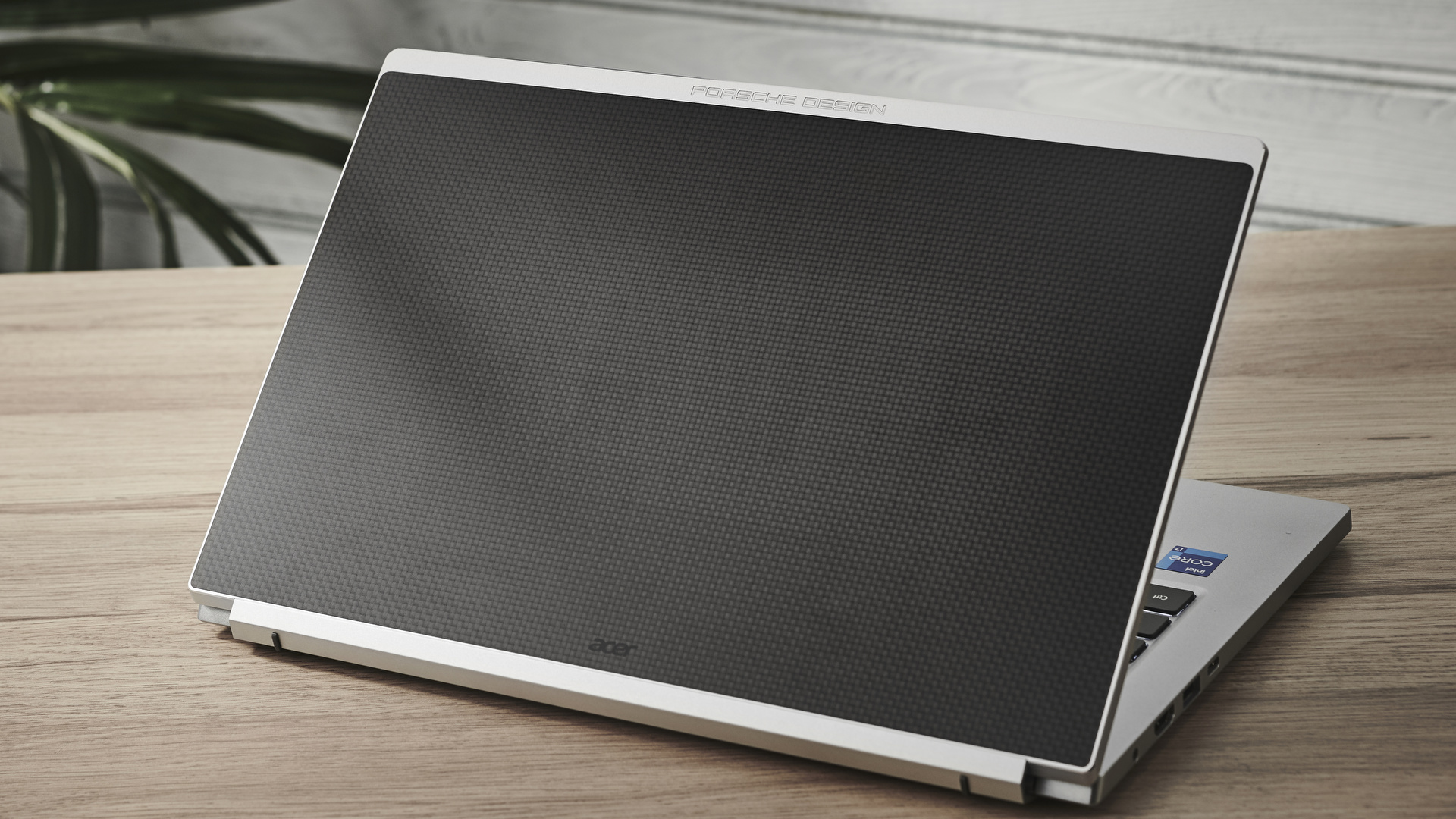
Here is the Porsche Design Acer Book configuration sent to TechRadar for review:
CPU: i7-1165G7 (2.80 GHz)
Graphics: Nvidia GeForce MX350 2 GB
RAM: 16GB DDR4
Screen: 14-inch FHD (1,920 x 1,080) touch
Storage: 1TB
Ports: 2x USB-A 3.1, 1x USB-C with Thunderbolt 4, HDMI 2.0 x1, combi audio jack
Connectivity: WiFi 6
Camera: 720p
Weight: 3.3lbs
Size: 12.5 x 8.2 x 0.63 inches
Price and availability
Our review unit was the Porsche Design Acer Book RS premium package (i7 Acer Book plus accessories), which retails for $1,999.99 / £2100 (around AU$2550). The laptop itself will set you back $1,699.99 / £1,900 (around AU$2,200) for the Core i7-1165G7 configuration, or $1,399.99 / £1,500 (around AU$1,800) for the less powerful Core i5-1135G7 version.
The Porsche Design accessories can be purchased separately, so you can still get your hands on them if you’re wanting to buy the cheaper model. The Acer Mouse RS is priced at $110/£95 (around AU$140) and the Porsche Design Acer Travelpack RS at $330/£280 (around AU$420). We were able to find the laptop available for purchase across various US and UK retailers; however there’s no current confirmation as to when the machine will be available to buy in Australia, despite it being advertised on Acer’s Australian website.
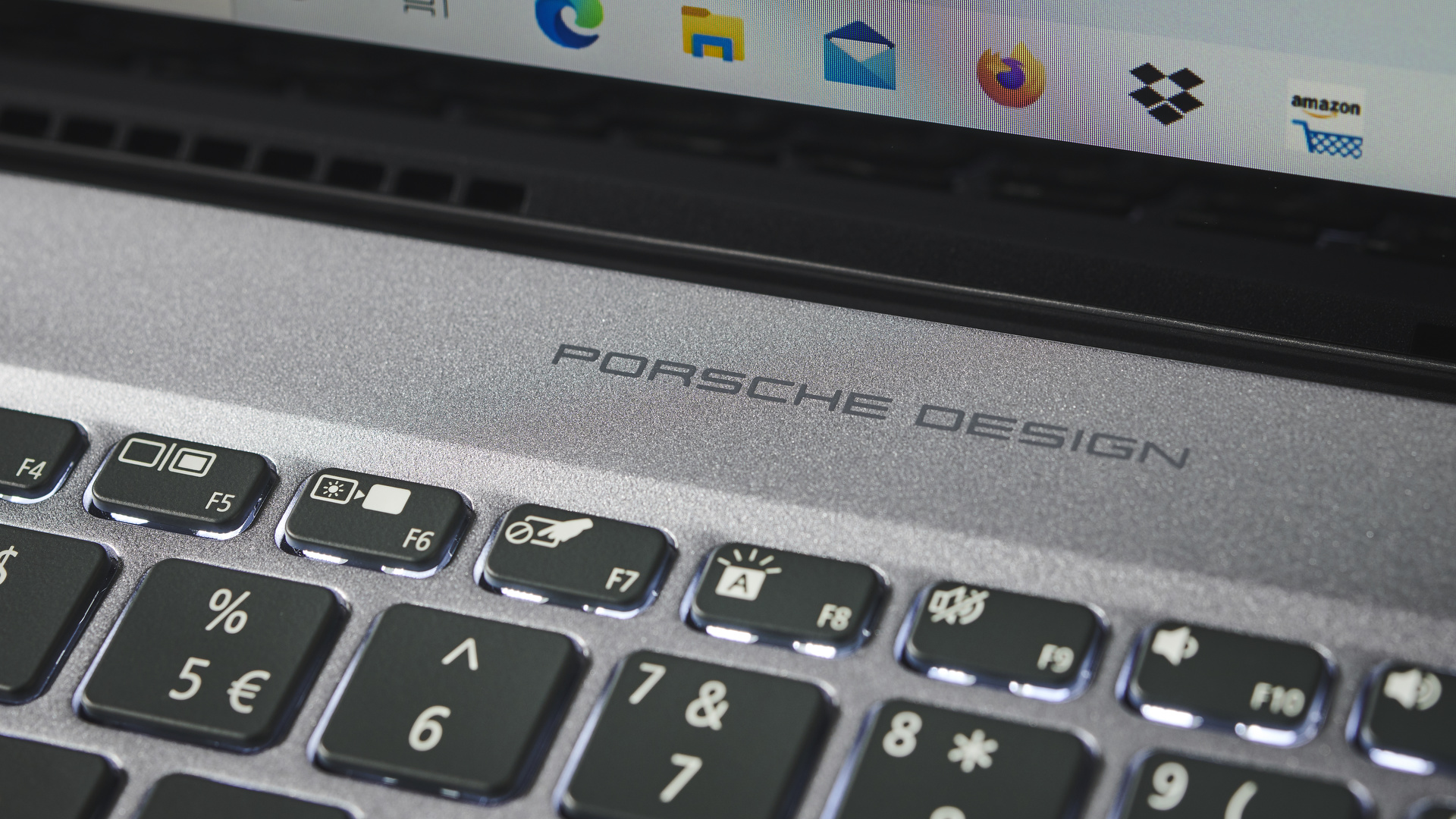
Its premium pricing puts the Porsche Design Acer Book roughly in the same bracket as the Dell XPS 15 or the Apple MacBook Pro M1 – both of which are beautifully designed laptops that still manage to be more affordable, despite currently occupying the first- and second-place spots in our list of the best laptops.
In fact, we’re now seeing the newly released Nvidia RTX 3000 series cards starting to appear in the next generation of gaming laptops, which means if you’re wanting a professional-looking laptop that can also play the latest AAA games you could spend $1,600 (around £1,500/ AU$2050) on the aptly named MSI Stealth 15M, which also rocks an 11th-gen i7 processor and the latest RTX 3070 GPU.
Design
If any feature of the Porsche Design Acer Book is going to justify its high price tag, it’s the chassis. The laptop has a solid aluminum frame, and features a CNC-machined, 3K carbon fiber lid panel that creates a unique appearance, with a subtle nod towards its racing car design pedigree. The prominent engraved Porsche Design logo, and the textured pattern on the lid can also be seen on the matching mouse.
The Porsche Design Acer Book RS weighs in at 3.3lbs, which is extremely light, though it's unlikely that the use of carbon fibre actually reduced the weight of the machine overall as the panels appear to be purely decorative. In fact, it’s actually slightly heavier than some other models in the lightweight laptop category – the Dell XPS weighs just 2.8lbs, with the HP Spectre x360 trailing just behind at 3lbs.
You get two USB 3.2 gen 1 ports, one USB-C port and a single HDMI output located on the sides of the machine, which is a perfectly reasonable amount of connections. The USB-C port allows for charging with the 65W charger that’s included in the box, interestingly alongside a second charger, only this version is a cylindrical adapter that leaves you free to charge the device while using another USB-C device should you need to – it's refreshing that you get the option to choose without having to buy an additional adapter.
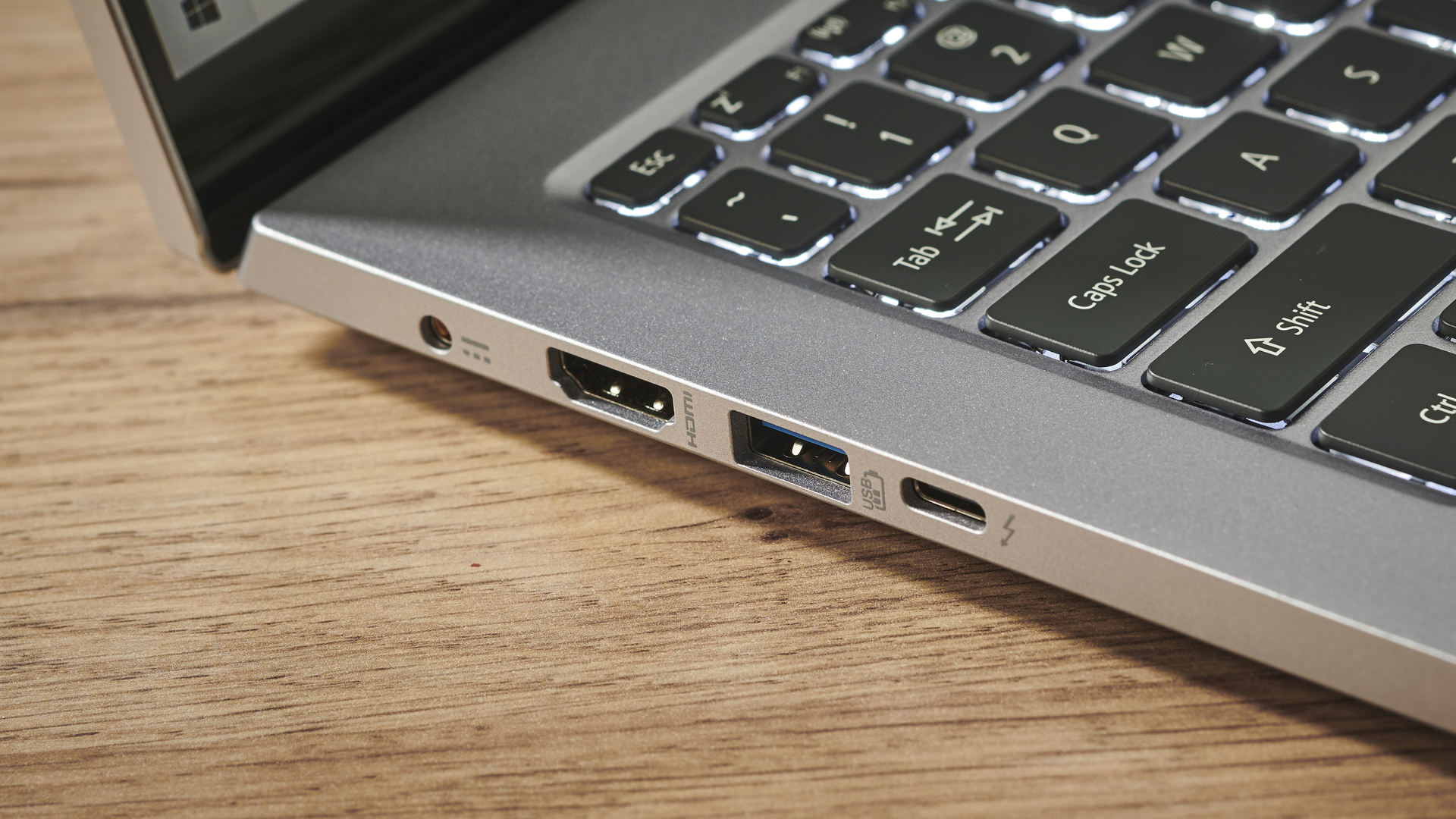
The bold design from the lid sadly isn’t carried through to the rest of the laptop, but the brushed aluminum finish is still a stylish and modern choice, if a little unoriginal. The keyboard is a real delight to use, with responsive keys that make an audible clicking noise similar to a mechanical build, and the touchpad has a lovely smooth texture that doesn’t cause uncomfortable friction against your fingers.
There is a fingerprint reader built into the touchpad, and we didn’t run into any issues getting it to recognize our digits. Applying some pressure does cause the keyboard and touchpad section to flex slightly, but this shouldn’t prove to be an issue in regular use.
The 16:9 display is coated with a scratch-resistant glass for durability, and boasts a fairly impressive 340nit brightness rating. The screen looks sharp and bright, even if it isn’t the best on the market. The display also doubles as a touchscreen for when you get tired of using the touchpad or require faster interaction with supported apps, and we’d certainly recommend using the screen over the atrocious Porsche Design mouse from the accessories kit.

While the laptop case and leather travel kit are perfectly decent (if a little overpriced), the wireless mouse is a complete joke. The carbon fiber button can’t conceal the cheap plastic build, and despite this being 2021, you’ll need to keep spare batteries handy when using it, as the Porsche Design Acer mouse isn’t rechargeable. Worse still, the shape and layout are completely impractical for use, with the scroll wheel being located too far down from your index finger to be practical, and zero ergonomics to be seen.
And let’s not forget that this mouse is supposedly worth $110/£95. If you’re looking to get either of the Porsche Design Acer laptops then we’d recommend that you steer clear of the optional accessories or the premium package.
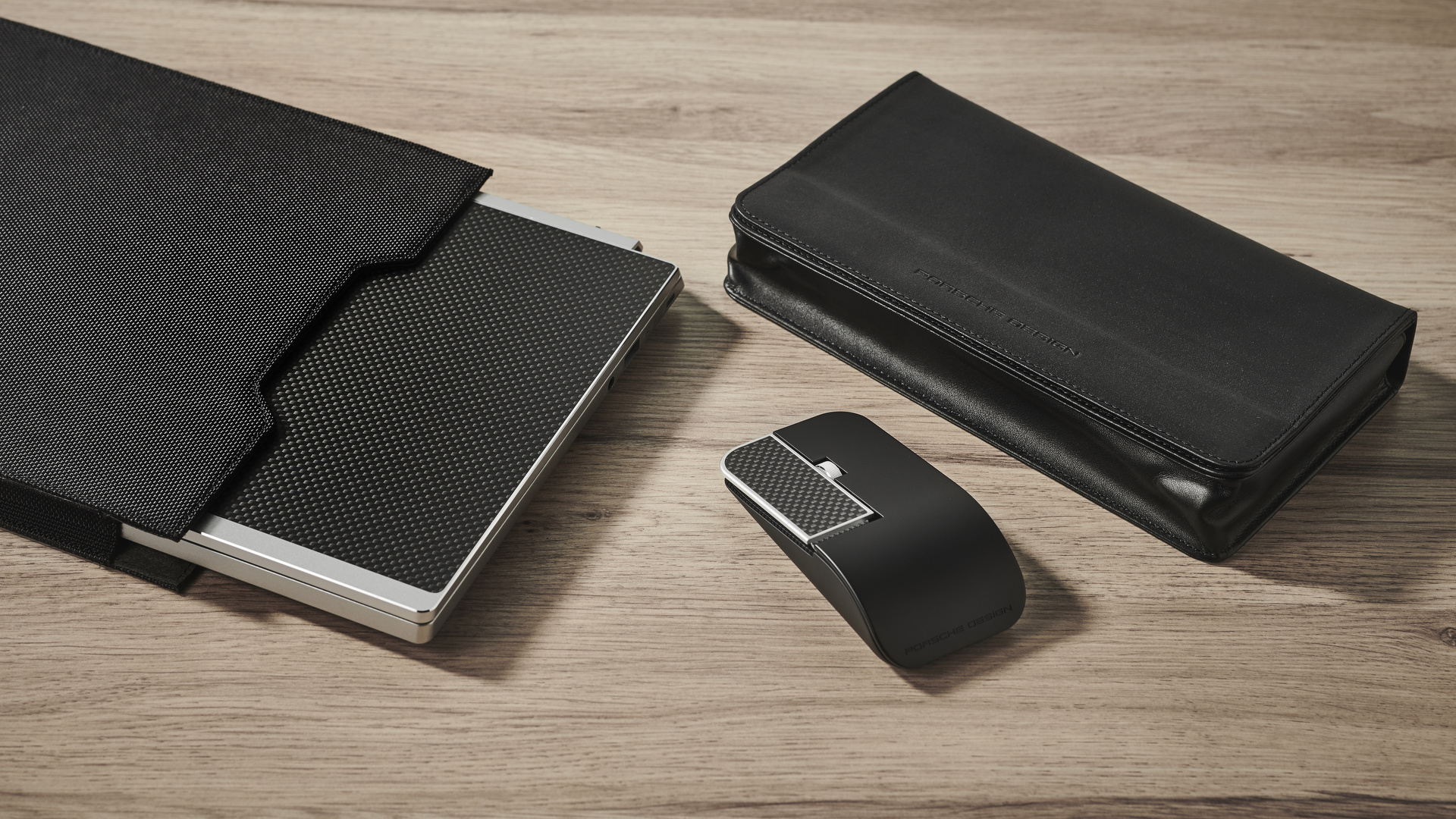
Here’s how the Porsche Design Acer Book performed in our suite of benchmark tests:
Cinebench R20: points
GeekBench 5: 1511(single-core) ; 5728(multi-core)
PCMark 10 (Home Test): 5154
PCMark 10 Battery Life: 9 hours 31 minutes
Battery Life (TechRadar movie test): 10 hours 12 minutes
Performance
Packing an Intel Core i7-1165G7 processor and dedicated Nvidia GeForce MX350 graphics, the Porsche Design Acer Book RS fits neatly into the next generation of laptops marketed towards professionals who don’t have the same hardware demands as creative professions such as 3D artists. The quad-core CPU can achieve boost speeds of up to 4.70GHz, which is reflected in the impressive benchmark results achieved by the device during our tests.
The laptop performed admirably in every benchmark we put it through, posting powerful results that show it can hold its own when it comes down to performance. A GeekBench 5 multi-core score of 5,728 means you’re getting a machine that can handle a vast array of tasks without complaint, and one that should more than meet the demands of working professionals and students.
The Nvidia GeForce MX350 graphics pale in comparison to the current ray tracing-capable generation of GPUs, but that’s not to say the Porsche Design Acer Book RS can't play some games should you feel inclined. You’ll have to leave the AAA titles on the shelf, but for indie games or something a little more dated, you’ll get manageable performance. There isn’t any dedicated cooling solution for heavy graphical workloads though, so you’ll want to avoid pushing the laptop too far into gaming territory – it clearly isn’t built with that in mind.
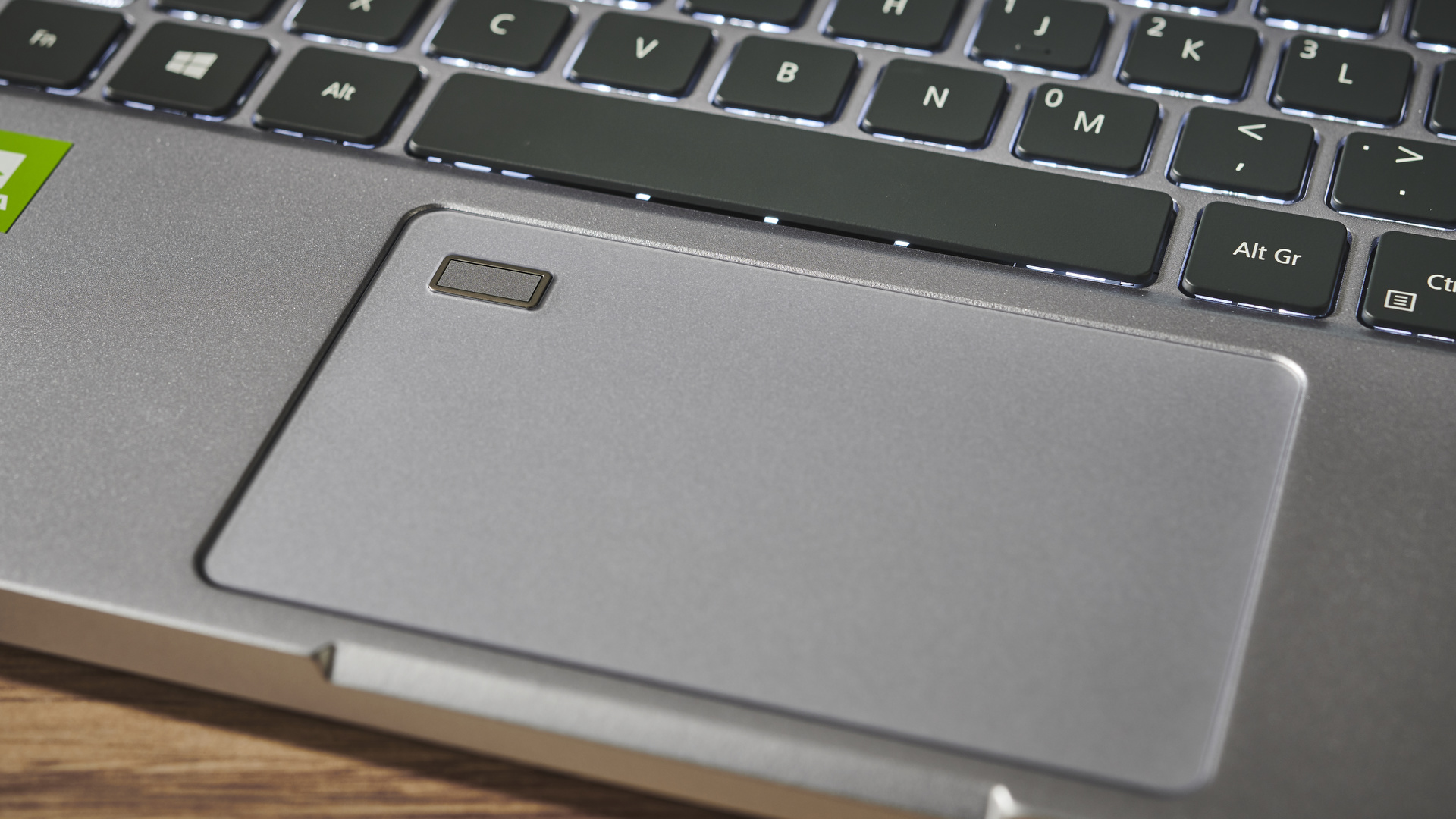
The down-firing speakers provide only mediocre audio quality, which is another disappointment given the price you’re paying. Laptops aren’t exactly known for their high-quality audio experience, but the bass was especially non-existent on the Porsche Design, with both music and movie audio feeling flat and lifeless. It isn’t unlistenable-to, but you’ll want to consider headphones or a separate speaker system if you’re planning to watch movies or play games.
On the plus side, the Porsche Design Acer Book RS is quick to boot up, and to load applications. The performance is a tad overkill for anyone wanting a simple everyday laptop, but it lives up to expectations as a premium machine, albeit an overpriced one.
The underside can get a little toasty if you force it to work on too many big jobs at once, but this wasn’t enough to cause any real discomfort, and the fans were silent throughout use, not emulating the roaring noise of a Porsche car engine when trying to cool down the inner components.
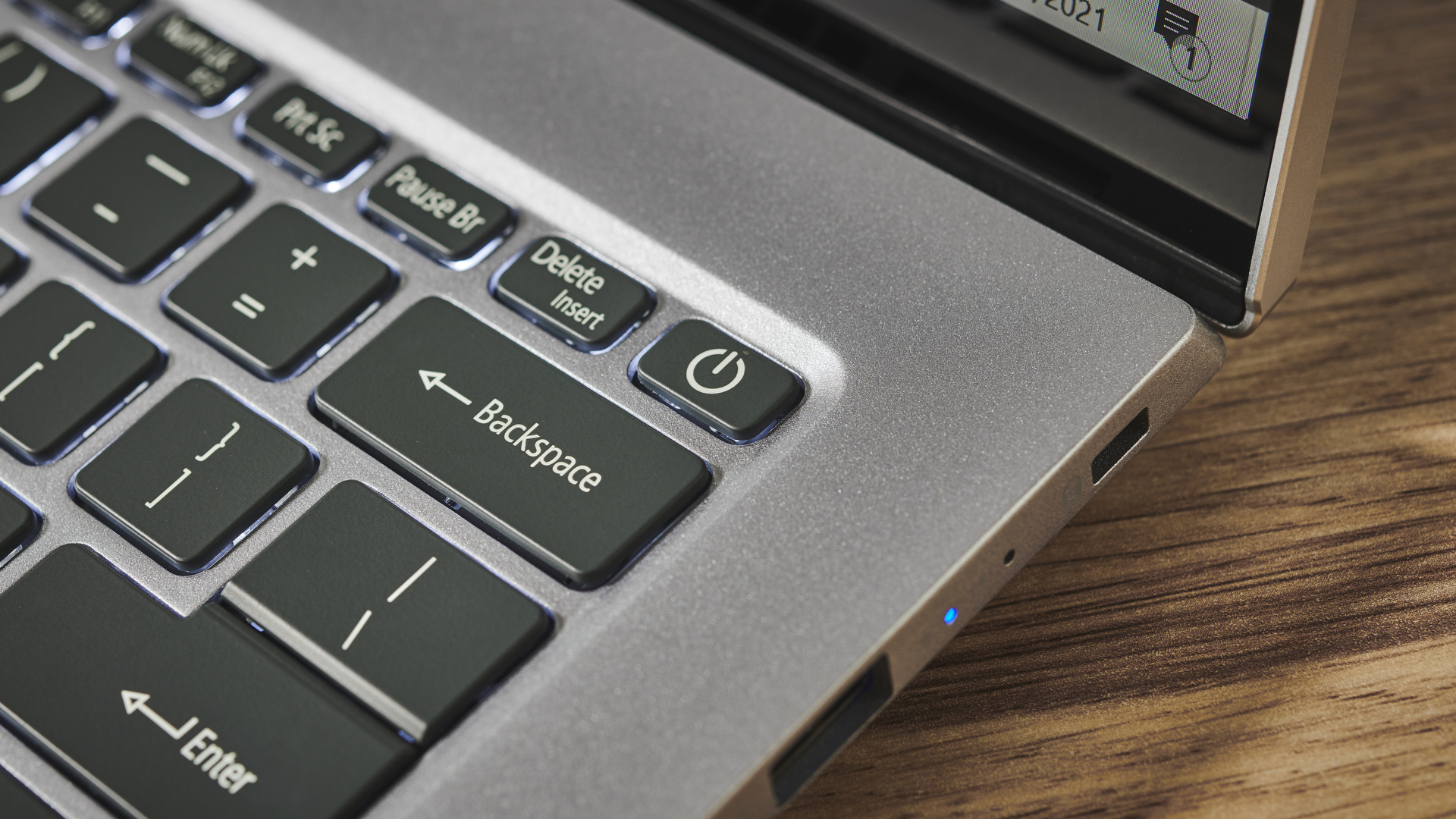
Battery life
The battery life is a definite upside of the Porsche Design Acer Book RS, with Acer claiming up to 15 hours of use from a full charge. Our tests didn’t quite hit those heights, but the longevity of the device is still very impressive, coming in at just over nine and a half hours on the PC Mark10 battery life test.
This test essentially runs the laptop through a variety of simulated everyday, and repeats those tasks until the battery is depleted. This gives us a fairly accurate representation of what the Porsche Design laptop can achieve in an office environment where it’s being used for video calling, spreadsheets and general web browsing.
The TechRadar video loop test also produced splendid results, with the laptop finally powering down after 10 hours and 12 minutes. You should have no issues getting through a full work day using this machine remotely and away from mains power, and the choice of two different styles of charging adapters means you’re spoiled for choice when you do need to top the machine up.
Buy it if...
You’re a fan of Porsche Design
You’re paying a hefty sum for this laptop, and an awful lot of that is going on the branding. If you love other items in the Porsche Design range then you’re sure to love this too.
You want a powerful laptop
This is a very powerful laptop, regardless of how overpriced it is. The new 11th gen i7 processor and dedicated graphics will handle just about any amount of browser tabs and general office work with ease.
You need a battery that can last all day
With around 10 hours of battery life to play with, you shouldn’t find yourself rushing to find a power outlet for this laptop.
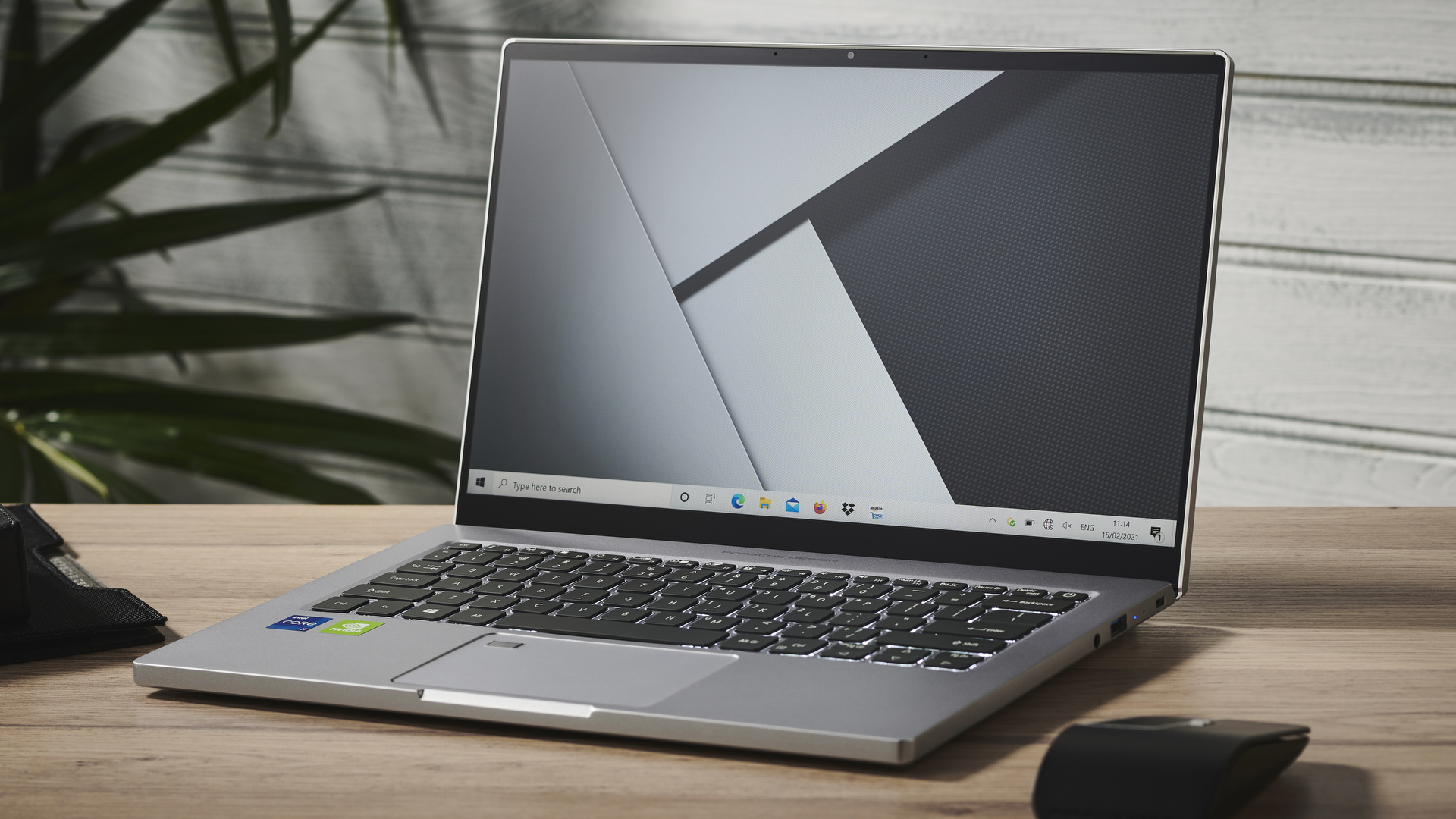
Don't buy it if...
You like getting your money’s worth
We’ve mentioned this several times already, but one more time for good measure: you’re paying an extortionate amount for the Porsche branding, and there are better laptops out there that will cost you much less.
You want to play games
While it might handle an indie game okay, look for something more graphically powerful if you want to jump into the latest AAA titles.
You like to consume a lot of media
The audio quality on the Porsche Design Acer Book RS is lackluster, and you’ll find 4K displays on other devices in the same price bracket. If you’re using this laptop mainly to watch shows or listen to music without an external speaker, you may find yourself disappointed.
- These are the best laptops of 2021

Jess is a former TechRadar Computing writer, where she covered all aspects of Mac and PC hardware, including PC gaming and peripherals. She has been interviewed as an industry expert for the BBC, and while her educational background was in prosthetics and model-making, her true love is in tech and she has built numerous desktop computers over the last 10 years for gaming and content creation. Jess is now a journalist at The Verge.
